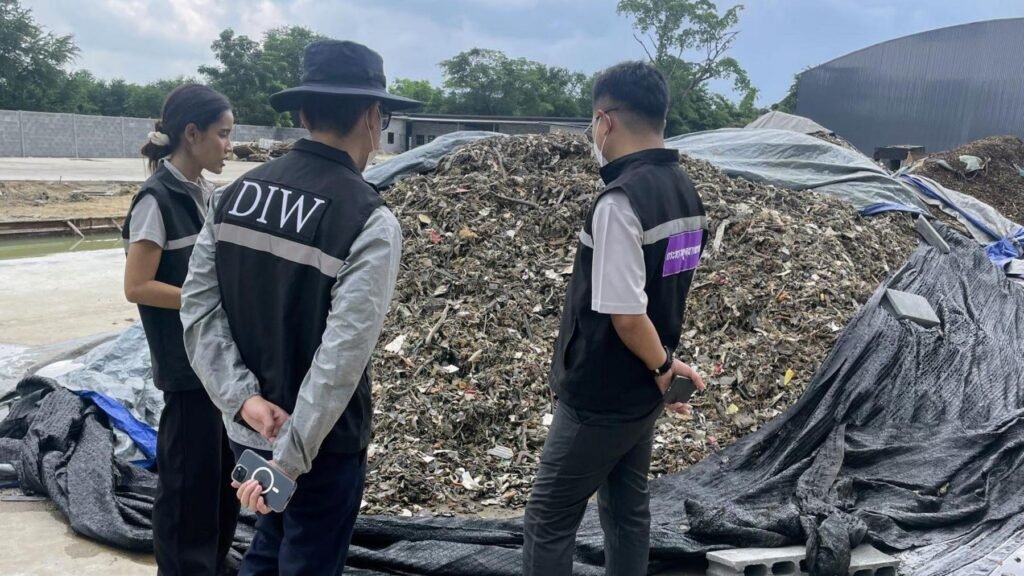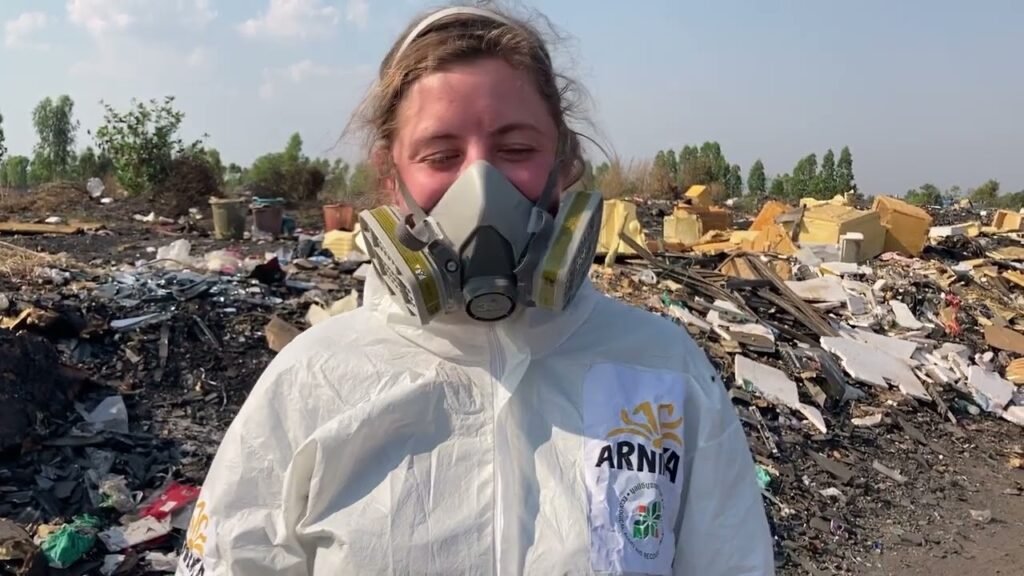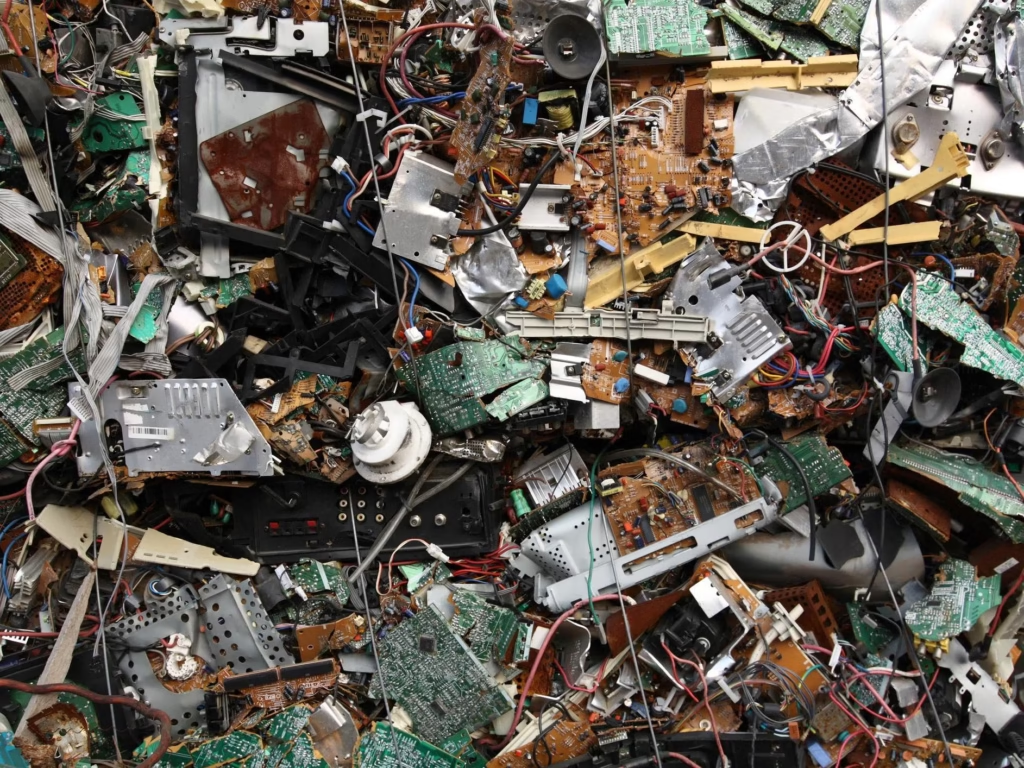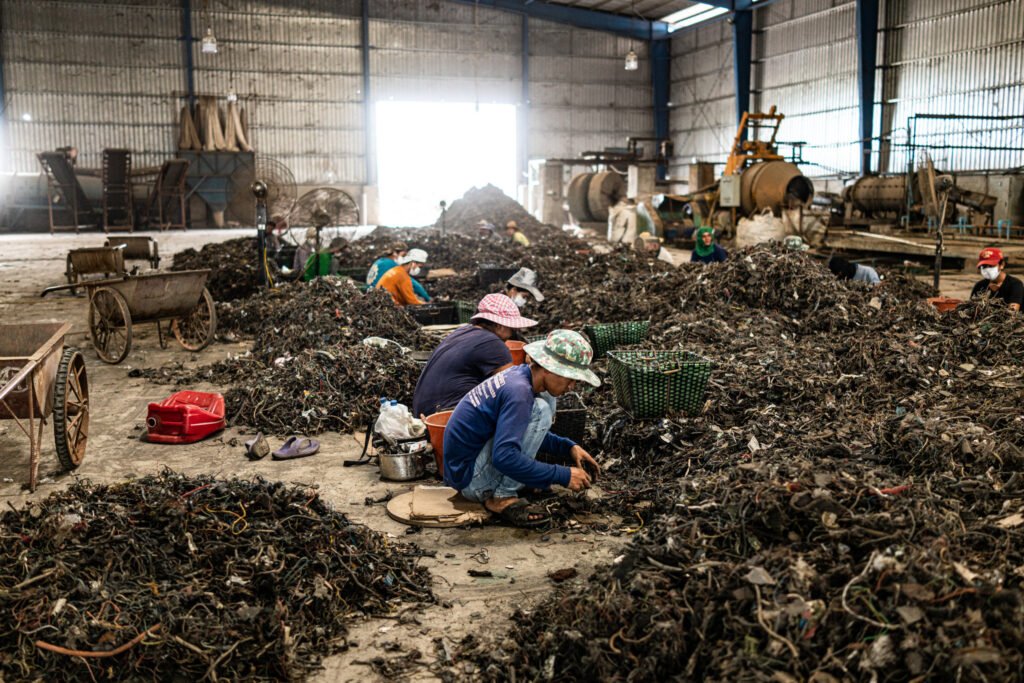Thailand Communities Suffer the Impact of Electronic Waste Pollution
In eastern Thailand, near a bustling highway, Thitipas Choddaechachainun methodically sifts through piles of discarded electronics, a scene that highlights the growing crisis of Thailand electronic waste pollution. Within a sprawling warehouse, the industry ministry’s inspection team, under her guidance, meticulously samples heaps of scrap metal, circuit boards, and obsolete computer hardware. Their mission: to uncover evidence of illegal e-waste processing that is rapidly degrading the country’s environment.

“This clearly qualifies as electronic waste,” Thitipas states firmly. “Yet the site lacks a proper license to handle such hazardous material.”
As the head of a national task force, she leads weekly raids on unauthorized recycling operations hidden deep in Thailand’s countryside. These clandestine sites are multiplying, complicating efforts to regulate and control the spread of hazardous waste.
Thailand’s Electronic Waste Pollution as a Global Fallout
Historically, China was the epicenter of global e-waste recycling. For years, millions of tonnes of outdated gadgets from the West were shipped there for cheap disposal. But in 2018, China imposed a sweeping ban on e-waste imports, prompting global exporters to redirect their shipments.
Thailand quickly became a new destination. Despite implementing its own ban in 2020, the country’s annual e-waste influx ballooned from 3,000 tonnes to a staggering 60,000 tonnes in just a decade, according to the environmental advocacy group Earth Thailand.
Much of this toxic cargo originates from the United States and European Union. In regions with high per capita ownership of electronics—smartphones, fridges, washing machines—frequent upgrades mean mountains of outdated devices. While many Western nations have laws to prevent e-waste exports, loopholes exist. Devices are often mislabeled as “second-hand goods for resale” but are soon dismantled and smelted for valuable metals upon arrival.
How Illegal Smelting Drives Thailand Electronic Waste Pollution
Smelting operations release toxic substances—mercury, lead, and harmful fumes—into Thailand’s air, soil, and water. These informal processing sites recover precious metals like copper and gold, generating enormous profits. However, the environmental cost is devastating.

“Thailand gains nothing from this activity,” Industry Minister Akanat Promphan told reporters. “It harms our ecosystems and endangers local communities.”
He describes the situation as turning the country into a global dump site, where unregulated, often Chinese-owned facilities run illegal smelting operations. Much of the salvaged metal is shipped back to China, completing a dangerous cycle of pollution and profit.
Local Impact: Farmers on the Frontline
In a small farming village in eastern Thailand, 57-year-old Seng Wongsena laments the loss of his cassava harvest. “The plants don’t flower like they used to,” he says. The culprit? Polluted runoff from a nearby smelting plant. The acrid stench lingers throughout the night, robbing him of sleep and health.
Local environmentalists claim that the facility operates without authorization and have urged authorities to shut it down. Residents fear long-term contamination of their water sources and soil—an existential threat to agriculture and food security in rural Thailand.
Global Waste, Local Consequences
Jim Puckett, Executive Director of the Basel Action Network, a non-profit tackling toxic waste, emphasizes the global nature of the crisis. “Thailand has become collateral damage in the West’s addiction to electronics. Importing hazardous materials for recycling leads directly to environmental destruction.”

With over 60 million tonnes of electronic waste generated globally each year—double the amount from 15 years ago—the problem is growing exponentially. By the end of the decade, experts forecast a 30% increase.
Yet less than 25% of this waste is responsibly collected or recycled, according to the United Nations. The world’s recycling efforts are failing to keep pace with the rapid growth of digital consumption.
The Push for Producer Responsibility
To combat the crisis, many nations have introduced extended producer responsibility (EPR) laws. These regulations hold manufacturers—like Apple, Samsung, and Dell—accountable for the end-of-life disposal of their products.
Thailand is preparing to implement a similar law. Industry Minister Promphan affirms: “We’re pushing to enact this legislation soon—hopefully by year-end or early next year. Our commitment is firm: we will dismantle the network of illegal e-waste processors.”
This policy could shift responsibility back to electronics producers, compelling them to establish proper recycling and take-back programs in Thailand and beyond.
The Economics of Illegal Recycling
Illegal recycling is profitable because it avoids the cost of environmental compliance. By skipping proper safety measures, these facilities can operate cheaply and efficiently. However, the fallout includes poisoned water tables, degraded soil, and irreversible health impacts on nearby residents.
Experts warn that without international coordination and rigorous enforcement, the problem will persist. Thailand electronic waste pollution is not just a local issue—it is a symptom of global negligence.
Smarter Solutions for a Cleaner Future
Environmental groups in Thailand are calling for increased transparency, better monitoring technology, and harsher penalties for illegal recyclers. Citizens are also being urged to rethink their consumption habits—opting for repairs, longer device lifespans, and verified recycling programs.

Thailand’s fight mirrors that of other nations struggling to control the flow of discarded electronics. The future lies in sustainable innovation—designing gadgets that are easier to repair, reuse, and recycle.
A Global Wake-Up Call
Thailand’s struggle with electronic waste is a wake-up call for the world. Each discarded phone or outdated computer contributes to a growing ecological crisis. By recognizing the environmental cost of our digital habits and supporting responsible recycling, we can help stem the tide of pollution that threatens communities far from our own.
The battle against Thailand electronic waste pollution is not just Thailand’s to fight. It requires global solidarity, smart policy, and a cultural shift in how we value and dispose of technology.




